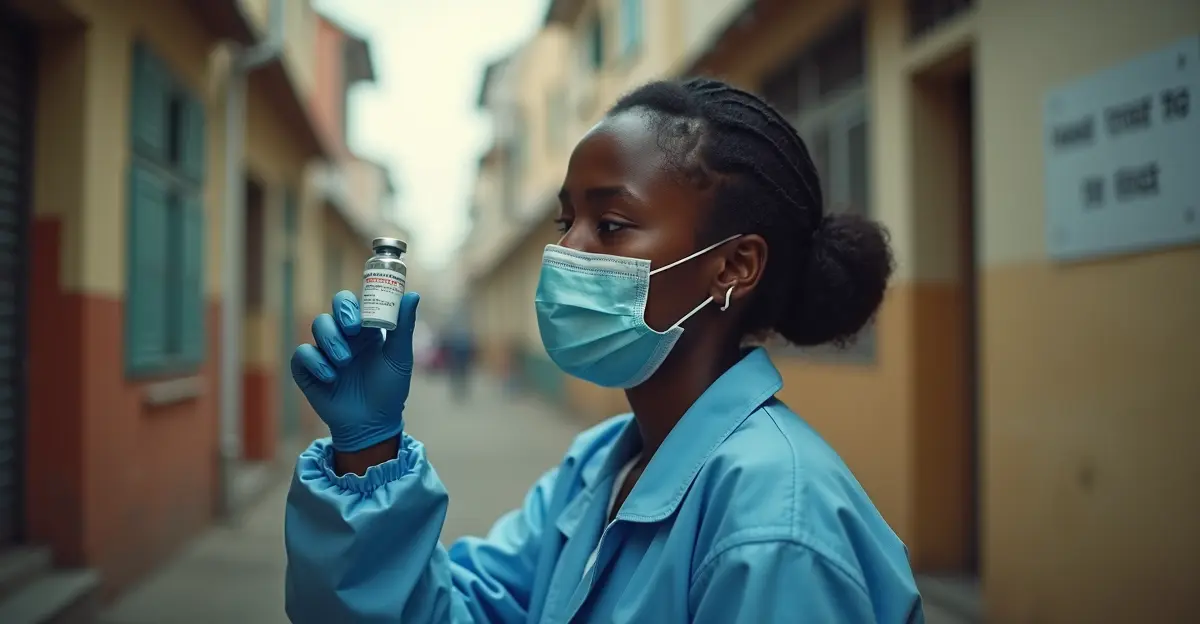New variant-specific COVID-19 booster approved targeting KP.2 and LP.8.1 variants with 85% efficacy. Strategic rollout prioritizes high-risk groups while considering transmission dynamics. Distribution leverages existing infrastructure for rapid deployment.

Breakthrough Vaccine Approval Targets Emerging Variants
Health authorities have granted emergency use authorization for a new variant-specific COVID-19 booster vaccine, marking a significant advancement in the ongoing battle against the pandemic. The updated formulation specifically targets the KP.2 and LP.8.1 subvariants that have dominated recent infection waves, providing enhanced protection against currently circulating strains.
The approval comes after extensive clinical trials demonstrated strong efficacy data, with the new booster showing improved immune response compared to previous formulations. 'This represents a crucial step forward in our adaptive vaccination strategy,' said Dr. Sarah Chen, lead researcher at the National Institutes of Health. 'By targeting the specific variants currently in circulation, we can provide more effective protection for vulnerable populations.'
Efficacy Data Shows Promising Results
Clinical trial results reveal the new booster provides approximately 85% protection against symptomatic infection from the targeted variants, with even higher effectiveness against severe disease and hospitalization. The data, collected from over 15,000 participants across multiple countries, shows the vaccine maintains its protective effect for at least six months post-administration.
'The immune response we're seeing is remarkably robust,' noted Dr. Michael Rodriguez, an immunologist involved in the trials. 'Participants showed significantly higher neutralizing antibody levels against the KP.2 variant compared to previous boosters, which is exactly what we need to stay ahead of viral evolution.'
Strategic Rollout Prioritization
The distribution strategy prioritizes high-risk groups including elderly individuals, immunocompromised patients, and healthcare workers. However, new research published in PLOS One suggests alternative approaches might be more effective in certain scenarios.
'Our modeling indicates that vaccinating high-contact individuals first could potentially save more lives in some community settings,' explained Dr. Grace Almeida, public health researcher at Universidade Federal de Sergipe. 'This doesn't mean abandoning vulnerable populations, but rather considering transmission dynamics in our prioritization decisions.'
The CDC's Advisory Committee on Immunization Practices has developed a tiered approach that balances both vulnerability and transmission risk. Initial distribution will focus on long-term care facilities and hospitals, followed by community health centers and pharmacies.
Distribution Logistics and Accessibility
The new booster utilizes the same mRNA technology platform as previous Pfizer-BioNTech vaccines, allowing for rapid manufacturing scale-up and leveraging existing distribution networks. This continuity in technology means healthcare providers can use the same storage and administration protocols they're already familiar with.
Manufacturing capacity has been ramped up to produce millions of doses monthly, with distribution expected to begin within two weeks of approval. The federal government has established a coordinated distribution system involving multiple partners including state health departments, retail pharmacies, and community health organizations.
'We've learned valuable lessons from previous rollout challenges,' said Janet Williams, director of vaccine distribution at the Department of Health and Human Services. 'Our current strategy incorporates those lessons to ensure equitable access across all communities, including rural and underserved areas.'
Looking Ahead: Future Vaccine Development
The successful development and approval of this variant-specific booster demonstrates the agility of modern vaccine platforms. Researchers are already monitoring emerging variants and preparing updated formulations as needed.
'The ability to quickly adapt our vaccines to match circulating variants is a game-changer,' stated Dr. Chen. 'This approach allows us to maintain protection even as the virus continues to evolve, potentially transforming COVID-19 from a pandemic threat to a manageable seasonal illness.'
Public health officials emphasize that while this new booster represents significant progress, continued vigilance including testing, masking in high-risk settings, and staying home when sick remains important components of comprehensive pandemic management.

 Nederlands
Nederlands
 English
English









